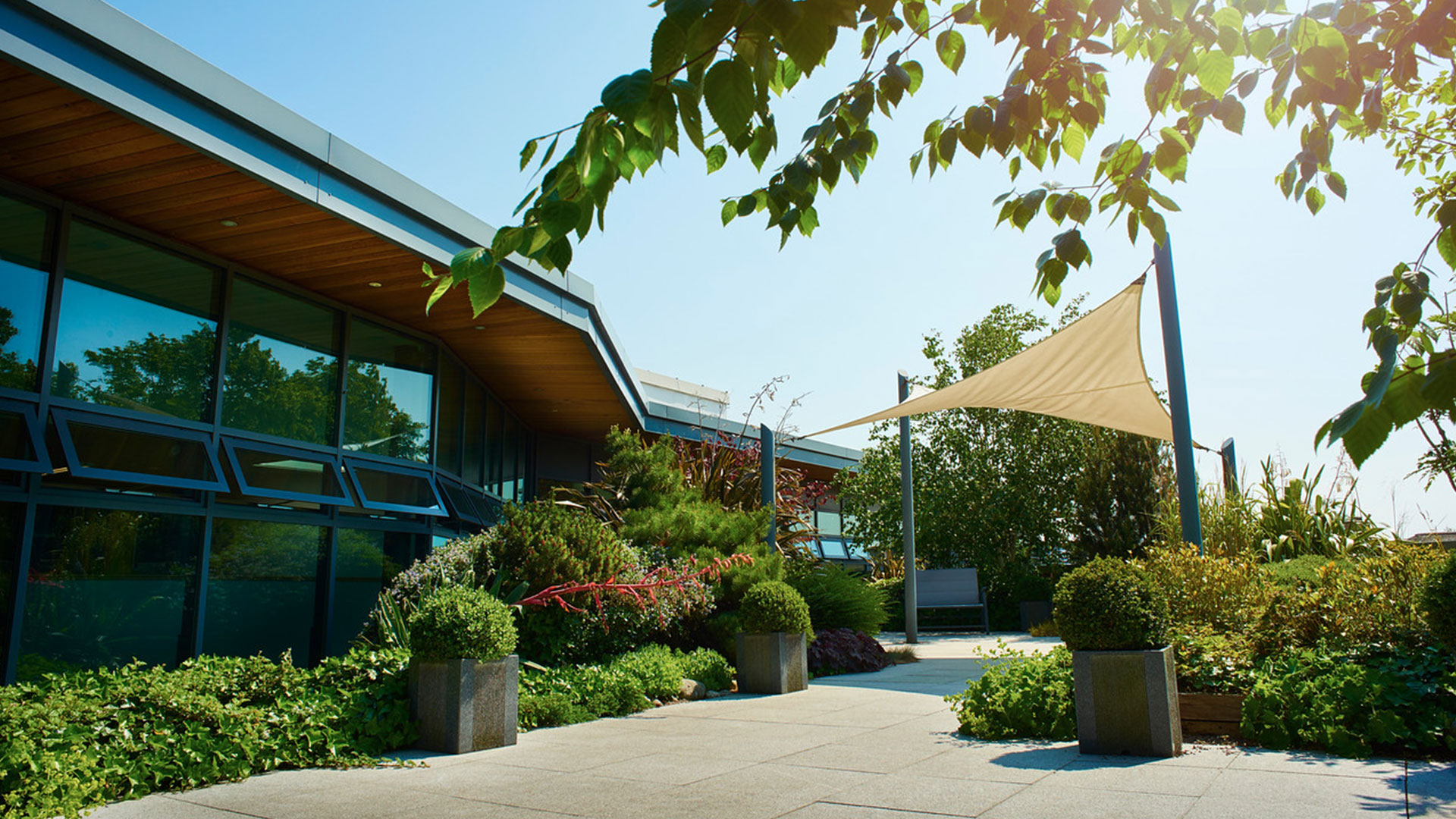
Here at Edge Hill University we take access to good quality food seriously and want to make sure that all our students and staff have access to information about how to grow their own food. With this in mind we are starting to introduce new growing spaces on campus.
This project is taking a collaborative approach between Grounds, Corporate Sustainability and The Gardens Project – which is a student-led team dedicated to student access to growing spaces.
The first space we have developed is the rooftop terrace on the Business School where we have now installed two planters with herbs in that anyone is welcome to pick, and a pollinator-friendly wildflower bed.
Business School Rooftop Area
Herb Planters
Our herb planters contain a range of herbs that you are welcome to take a small amount of to use in your favourite recipes. Carry on reading to find out more about each herb.
Rosemary (Salvia rosmarinus)
Rosemary is an excellent addition to stews, roasts and marinades to add flavour. You don’t need to use much rosemary to bring its flavour to a dish.
Rosemary is a drought-tolerant plant and is relatively resistant to pests. This makes it the ideal low maintenance plant for your garden.
Basil (Ocimum basillicum)
Basil can be used for a range of recipes including to make your own pesto and to add flavour and colour to a range of dishes such as lasagna and pasta bake.
Basil can be sensitive to the cold so may need to be covered up when temperatures turn cold – if this happens please don’t remove the cover and pick any. Basil can also be grown indoors and would happily grow on a windowsill with lots of light, just keep it away from any drafts!
Thyme (Thymus camphoratus)
Thyme has many uses, both medicinal and in cooking. It is often used to season stocks, meats and soups or can be used in salad dressings, sauces or marinades. You could also try sprinkling a small amount on vegetables when roasting them to enhance their flavour!
Thyme thrives in warm, sunny places and will have a nicer flavour when grown in these conditions. It is a relatively low maintenance plant and becomes drought-resistant over time but should be watered well when first establishing.
Parsley (Petroselinum crispum)
Parsley is most used in stocks, salads and soups. It can also be pureed into dips, sauces and pestos or sprinkled over a range of savoury dishes to bring more flavour.
This herb will grow well in partial shade or full sun. It does not tolerate drought and should be watered regularly to ensure that the soil stays moist. However, make sure that the pot has good drainage to prevent waterlogging. Harvest only each leaf with its stem and avoid cutting the main stem as this will prevent growth.
Wildflower Area
These plants are there to make sure that the bees and other pollinators have a space on campus and to provide a nice experience for those who visit the roof top garden. so please do not harm them by stepping on the flower bed or by picking any of them!
In the Wildflower bed we have:
- Ox-eye Daisy
- Musk Mallow
- Self Heal
- Lesser Knapweed